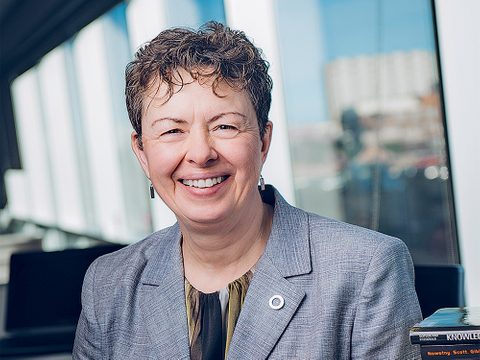Reposted from: http://www.readersdigest.ca/features/heart/13-canadian-health-heroes/6/
13 Canadian Health Heroes You Need to Know
In praise of doctors, nurses, researchers, inventors and activists from across the country who make it their mission to care.
READER'S DIGEST CANADA

Photo: Laughing Dog Photography
Carole Estabrooks, 62
Canada Research Chair (Tier 1) in Knowledge Translation in the faculty of nursing at the University of Alberta
She translates facts and figures into better eldercare.
By Sarah Liss
As a nurse working in intensive- and critical-care units, Carole Estabrooks spent a lot of time tending to the gravely ill and injured. Though the bulk of her cases involved a certain amount of heartbreak, she was particularly affected by elderly patients.
The hardest cases," Estabrooks says, "were the very old - the couple in their late 80s who'd been in a car accident. I felt they shouldn't have to live out their last days in pain." When - after years on the floor - she returned to school, completed a master's degree and a doctorate in nursing and became a researcher, Estabrooks followed her heart. For the past decade, she's gathered and used data to improve the quality of care and the quality of life of seniors and front-line staff in long-term care facilities.
To do so, Estabrooks employs an approach called knowledge translation, which entails "making information, research findings and best practices accessible and usable for people in the system." Concretely, that might involve meeting with teams from nursing homes to identify areas in need of improvement - reducing pressure sores, say, or increasing residents' mobility - and then formulating plans to achieve those goals. The approach may seem a bit abstract, but it has real results: in pilot studies, subjects have seen significant reductions in disruptive behaviours that are common with dementia; other studies have also shown improvement in resident mobility, which means they spent more time interacting with others.
Estabrooks wants to help effect systemic change that will allow us to live the best lives we can, right up to the end. That doesn't just mean quality palliative care; she's talking about the details - a favourite flavour of ice cream or familiar music - that can bring a person joy.